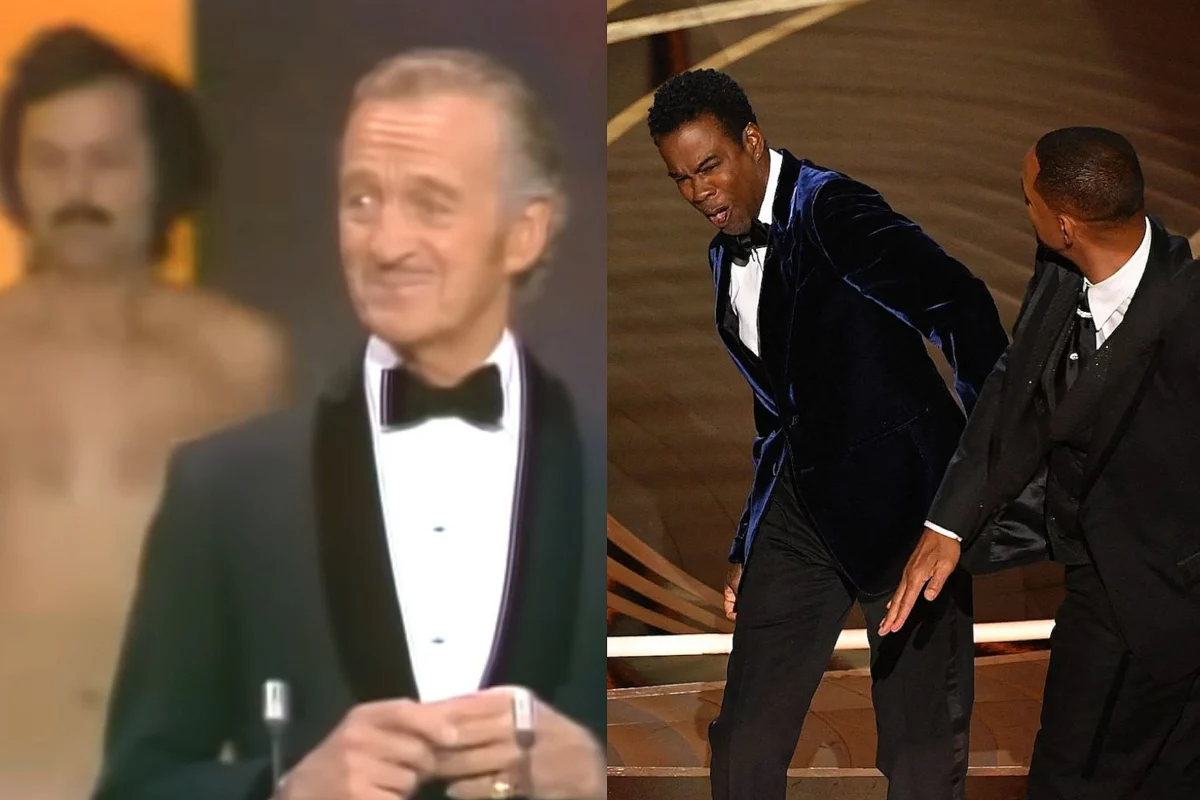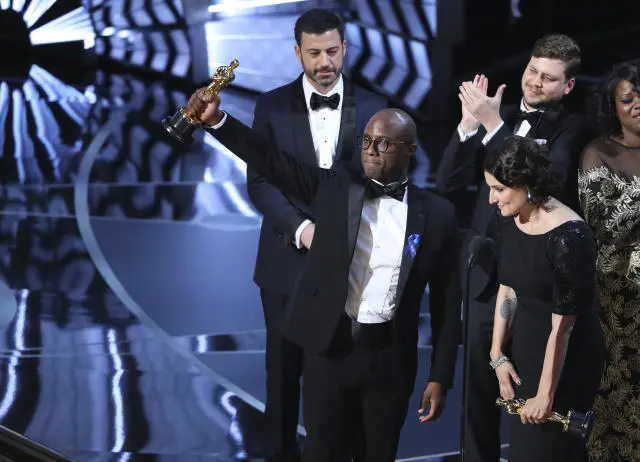The Academy Awards have long been a beacon of cinema, showcasing the best and brightest talents from around the globe. Yet, with every glimmering trophy bestowed, there lurks a shadowy side filled with intrigue, controversy, and scandal. The recent uproar surrounding Emilia Pérez, a Netflix-produced musical about a reformed cartel member who has undergone gender reassignment, has pushed Oscar controversies to new heights. With its staggering 13 nominations, including one for Best Picture, the film’s journey through the awards landscape has been anything but smooth. This discussion not only unveils the tangled narrative behind Emilia Pérez but also connects it with the historical context of Oscar scandals that have left their mark on Hollywood.
The Rise and Fall of Emilia Pérez

From its inception, Emilia Pérez sparked mixed reactions. As a film that explores themes of identity and redemption against the backdrop of the drug trade, it promised to challenge societal norms and provoke discussion. However, as the awards season progressed, the backlash intensified. Critics raised questions regarding cultural representation, authenticity, and the casting choices that seemed to overshadow the film’s intrinsic narrative.
The initial wave of admiration quickly transitioned to doubt as public sentiment shifted. Accusations regarding the accuracy of the portrayal of trans identities began to dominate discussions, especially with regards to the lead actor’s previous comments and social media history. This turn of events not only tarnished the reputation of the lead actor, Karla Sofía Gascón, but also created ripples that threatened the film’s opportunities at major awards.
The Impact of Timing on Public Perception
The timing of these controversies was particularly difficult for Emilia Pérez. As the film gained momentum, the narrative surrounding it grew increasingly complicated. Just as the nominations were announced, the accusations hit a fever pitch, causing panic among the Netflix team. The tension escalated as public figures weighed in, and the discussion became more hostile. The uproar reached a crescendo with media outlets and audiences debating its validity, creating an unpredictable environment for a film that was supposed to celebrate diversity and challenge perceptions.
A Historical Perspective on Oscar Scandals
This is not the first time that an Oscar contender has found itself in hot water. Historically, the Academy Awards have been rocked by scandals that have shaped the film landscape. The infamous Green Book win sparked debates about racial representation and the troubled narratives of marginalized voices. Similarly, the La La Land and Moonlight mix-up brought forth discussions regarding the Academy’s voting processes. These historical context pieces set the stage for understanding the depths of the Emilia Pérez scandal—a reflection of the ongoing struggles for authenticity in Hollywood’s storytelling.
As the stakes grew higher, and as expectations ran wild, the pressure placed upon the director and the entire cast became almost unbearable. Netflix’s aggressive promotion strategy did little to quell the concern that had rapidly spread among critics, worried viewers, and industry insiders alike.
Notorious Oscar Scandals Through History

The Oscar history is replete with scandals that have surprised audiences and reshaped the narrative of the awards. From Hattie McDaniel‘s groundbreaking win in 1940, despite the segregated Hollywood environment, to the uproar after Crash took home the Best Picture award, the Academy has seen its fair share of controversies.
Hattie McDaniel’s Historic Win
Hattie McDaniel’s win was monumental. However, it was shrouded in controversy primarily due to the racial segregation that permeated Hollywood during that era. Despite being the first African American to win an Oscar, McDaniel was forced to sit at a segregated table at the awards ceremony. Her win raised questions about the true values of the Academy and the industry’s treatment of people of color. The outcry that followed signaled the beginning of a much-needed conversation about representation in film.
The Rise of Modern Scandals
As time marched on, the scandals evolved. The emergence of social media has facilitated rapid discussion, often surrounding nominees even before the ceremonies take place. Green Book faced harsh scrutiny over its portrayal of race relations, leading to significant backlash against its directors and producers. This outcry emphasized the navigational challenges filmmakers face when tackling poignant social issues.
As Emilia Pérez attempts to secure its place in Oscar history, it joins the ranks of films that have incited passionate responses from critics and the public alike. The fine line between representation and exploitation continues to be debated, revealing deeper issues in the film industry.
The Cultural Significance of the Emilia Pérez Scandal

Emilia Pérez serves as a mirror reflecting the complexities of cultural identity. This scandal highlights the challenges that productions face when representing diverse cultures accurately. Cultural gatekeeping and representation have become hot-button issues in the industry, with increasing scrutiny placed on how stories are told and who is telling them. Critics assert that films like Emilia Pérez should be required to have representation at all levels, from writing to directing to acting.
The Importance of Authentic Representation
Authenticity is paramount in storytelling, especially when tackling sensitive themes such as gender identity and the drug trade. The backlash against Karla Sofía Gascón underscores the reality that audiences expect more than just a passing reference to diversity. The call for genuine ethnographic storytelling has gained momentum, where filmmakers are urged to engage with the communities they depict, ensuring their narratives are rooted in authentic experiences.
Impacts on Future Productions
This situation sets a precedent for future film productions aiming for Oscar prestige. The pressure from audiences, communities, and critics alike could lead to a re-evaluation of how stories are told, particularly around issues of race, gender, and cultural representation. The potential fallout from the Emilia Pérez scuffle may influence future filmmakers to adopt a more responsible and inclusive approach to their work, ensuring that marginalized voices are not only heard but also celebrated.
Challenges Facing the Oscars Today

The Academy Awards are at a crossroads, facing challenges that could redefine their legacy. As pressures for diversity, inclusion, and authenticity grow louder, the Oscars must adapt or face potential irrelevance. The discourse around Emilia Pérez illustrates a critical moment in the Academy’s history. Questions about the validity of nominations and the voting processes have emerged, revealing cracks in the once-unassailable structure of the Academy.
Redefining Inclusivity in Hollywood
The debate around the nominations for Emilia Pérez has emphasized the need for a review of how inclusivity is defined within the Academy. Historical precedence showcases a dismal track record, often sidelining films that genuinely engage with ethnic and gender diversity. Moving forward, the Academy’s approach must be transformation-oriented, advocating for meaningful changes in how films are identified, supported, and awarded.
Connecting with Audiences
Enhancing the relationship between the Oscars and its audience has become increasingly vital. The rise of media and instant communication creates an environment where public opinion shapes narratives. Developments in the film industry elevate certain discourses, like those surrounding Emilia Pérez, into central topics of discussion among fans and viewers. The backlash faced can significantly impact future film projects and potentially alter the landscape of awards shows.
Oscar nominations often act as a litmus test for broader societal attitudes, and as films push the envelope, they can lose supporters if they fail to connect with audiences genuinely. The Oscars must strive to bridge the gap between artistic achievement and public sentiment, facilitating a dialogue that’s relevant to modern audiences.
Final Thoughts on the Emilia Pérez Scandal

In a world where storytelling meets scrutiny, Emilia Pérez stands not just as a film but as a representation of broader societal challenges. The ripples of controversy highlight a desire for more conscientious filmmaking, urging creators to foster genuine conversations. With historical injustices and contemporary issues colliding, the lessons learned from Emilia Pérez may prompt a shift in the narrative dynamics within award circuits. As we reflect on these events, it’s evident that the fine line between art and advocacy continues to evolve, pushing filmmakers to navigate an unpredictable and rapidly changing landscape.
Source: www.thedailybeast.com
Hi, I’m Sarah, a 30-year-old journalist with a passion for storytelling and uncovering the truth. I strive to bring important issues to light and connect with my audience through compelling narratives.



